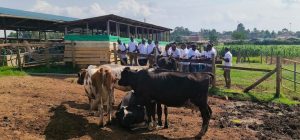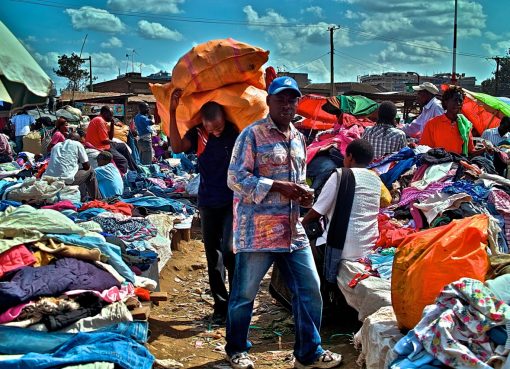Zoetis, a global animal health company, has partnered with Ripple Effect, a non-governmental organization, to train animal health service providers through the Africa Livestock Productivity and Health Advancement Initiative (ALPHA Plus) programme on best animal health practices to improve productivity while contributing to the One Health strategy.
The ALPHA Plus programme is an initiative of the Bill and Melinda Gates Foundation that seeks to improve livestock production systems in African countries, especially in sub-Saharan Africa, thereby contributing to food security.
The company, together with Ripple Effect, is conducting a training of Animal Health Service Providers who include Para-Professionals, Veterinarians and Para-Vets who will then train farmers in Western Kenya.
Speaking in Kakamega, a consultant with Zoetis, Dr. Peterken Munyoki, who is a veterinarian, said they were targeting to train over 100 000 livestock farmers in Kenya to adopt good animal health practices to reduce sickness and deaths of livestock and curb the transfer of diseases from animals to human beings, commonly known as zoonosis.
He said smallholder farmers in the continent grappled with the challenges of diseases striking their livestock, leading to huge losses, or transferring those diseases to human beings.
Dr. Munyoki said Zoetis is set to also improve the diagnostic capacity to support veterinarians who lacked better diagnostic facilities to carry on with their work while in the field.

Zoetis Kenya Technical Manager Ruminants Peter Lugonzo, who is also a practicing veterinarian, said that from the training, farmers would be able to reduce the excessive use of antibiotics in their animals to mitigate the global challenge of antimicrobial resistance.
“We live in a world where we are faced with a lot of uncertainties, especially on diseases, and a big percentage of these diseases emanate from animals, so it is important that farmers are aware of these good animal health management practices to mitigate diseases, not only diseases that affect animals leading to poor productivity but also to be able to control the spread of these diseases to human beings, what we call zoonosis,” Lugonzo noted.
He added that by adopting good animal health practices, farmers would be able to contribute to the One Health Strategy, the best practices that promote a good and healthier environment that is safe for all to co-exist in.
Peter Ngielo from Ripple Effect says that farming is a business which comes with challenges that might lead to losses due to lack of knowledge and access to services.
Ngielo said Ripple Effect is coming up with ways to enhance knowledge and enhance access to extension services like veterinary services to reduce production costs by reducing or eliminating diseases, which are a major cause of losses on a farm.
An Animal Health Service Provider from Khwisero, Herman Lichoti, said he has noticed that the majority of farmers do not vaccinate their livestock at the right time and in the right way and fail to observe biosecurity measures, leading to infections in their animals.
He said, with the knowledge, he will support smallholder farmers in Khwisero to acquire the best methods of managing their livestock to improve production.
One of the farmers, Moses Mung’oni, said he benefited from the vets during their working tour and is ready to expand his poultry business into an institution to support the training of farmers in Kakamega County.
Getra Eliwa, the Farm Manager of Bukura Smart Farm, said that she benefited from the expertise of the vets during their practical session at the farm.
She noted that at the Smart Farm, they rare pure breed animals in a zero grazing unit where they are confined and fed on hay and silage, which are Basal feeds. The farm also grows brachiaria species of fodder in partnership with Ripple Effect.
“We also procure supplements and concentrates, that is, dairy meal, calf pellets, and young stoke pencils. We supplement them with mineral salts, and they have access to adequate water that they drink,” she added.
She said the Bukura Smart Farm has a total of 36 dairy animals, of which 19 are adults, 12 heifers, five weaners, and three calves.
“Out of these animals, we are milking 13 with an average of 8 liters per cow, per day. We sell the milk that we produce to locals at Sh60 per liter. The demand for milk is very high,” she disclosed.
By Moses Wekesa





